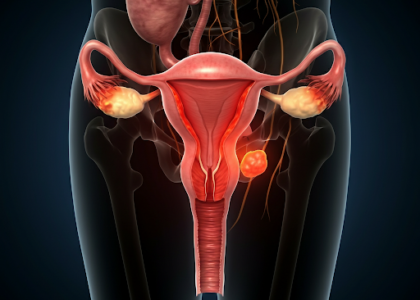Introduction
Pregnancy is a life-changing journey, and planning it after 30 comes with its unique set of challenges and advantages. As maternal age increases, so does the importance of focusing on health and wellness to ensure a smooth pregnancy and a healthy baby. With proper planning, lifestyle adjustments, and medical guidance, having a healthy pregnancy after 30 is entirely possible.
In this article, we’ll explore expert tips, lifestyle changes, and precautions to help you navigate your pregnancy journey confidently.
Why Pregnancy After 30 Requires Special Attention
While many women conceive and deliver healthy babies after 30, the biological clock does bring certain factors into play:
- Reduced Fertility
- The quality and quantity of eggs begin to decline after the age of 30, especially after 35.
- Tracking ovulation becomes crucial for timely conception. What is Ovulation, and How Does it Affect Fertility? – Dr. Anjana Jain | Gynae Clinic
- Increased Risk of Complications
- Higher chances of gestational diabetes, high blood pressure, and chromosomal abnormalities.
- A proactive approach to prenatal care is essential.
- Lifestyle Factors
- Busy professional and personal lives may leave less time for self-care.
Despite these challenges, many women have successful pregnancies after 30 with proper care.
Essential Tips for a Healthy Pregnancy After 30
1. Plan Your Pregnancy Early
- Consult with a gynecologist or fertility specialist to assess your reproductive health.
- Preconception counseling can help identify and address potential health issues.
2. Maintain a Healthy Lifestyle
- Nutrition:
Eat a balanced diet rich in fruits, vegetables, whole grains, lean proteins, and healthy fats. Include folic acid, iron, calcium, and omega-3 fatty acids.
Check out this Harvard guide on nutrition during pregnancy. - Exercise:
Engage in moderate physical activities like walking, prenatal yoga, or swimming. - Hydration:
Drink plenty of water to support healthy amniotic fluid levels and prevent dehydration.
3. Track Ovulation
- Use ovulation predictor kits or fertility apps.
- Learn about cervical mucus changes and basal body temperature for better timing.
4. Prioritize Mental Health
- Practice stress-relief techniques like meditation, mindfulness, or prenatal yoga.
- Seek support from family, friends, or professional counselors if needed.
5. Avoid Harmful Substances
- Quit smoking, avoid alcohol, and minimize caffeine intake.
- Be cautious with medications; consult your doctor before taking any.
6. Get Regular Medical Checkups
- Schedule regular prenatal appointments to monitor your baby’s growth and development.
- Screen for potential issues like gestational diabetes or high blood pressure early.
7. Consider Prenatal Supplements
- Take folic acid supplements to prevent neural tube defects.
- Discuss additional supplements like vitamin D or iron with your doctor.
8. Monitor Your Weight
- Maintain a healthy weight before and during pregnancy. Excess weight can increase the risk of complications like preeclampsia and gestational diabetes.
9. Educate Yourself About Pregnancy
- Attend prenatal classes to learn about childbirth, breastfeeding, and newborn care.
- Read reliable resources about pregnancy stages and symptoms.
Advantages of Pregnancy After 30
It’s not all challenges; there are significant benefits to becoming a mother after 30:
- Emotional and Financial Stability:
- Many women feel more secure in their careers and personal lives, allowing them to focus on their family.
- Mature Parenting:
- Life experiences often result in better decision-making and problem-solving as a parent.
- Stronger Support System:
- Established relationships with partners and family can provide better emotional and physical support.
Potential Risks and How to Mitigate Them
| Risk | Mitigation Strategy |
| Gestational Diabetes | Follow a healthy diet and engage in regular exercise. |
| High Blood Pressure | Monitor blood pressure regularly and reduce salt intake. |
| Preterm Birth | Attend all prenatal checkups and avoid strenuous physical activities. |
| Chromosomal Abnormalities | Opt for early screening tests like NIPT (Non-Invasive Prenatal Testing). |
Consult with your doctor to address any specific concerns.
When to See a Doctor
- If you have been trying to conceive for six months without success.
- If you experience irregular periods, painful ovulation, or other fertility-related issues.
- For tailored advice, visit our Understanding Female Infertility – Dr. Anjana Jain | Gynae Clinic
Conclusion
Pregnancy after 30 can be an enriching experience when approached with preparation and care. By focusing on your physical and mental health, consulting experts, and making informed decisions, you can ensure a healthy pregnancy and a happy motherhood journey.
If you are planning a pregnancy after 30 or need assistance in your journey, visit our Contact – Dr. Anjana Jain | Gynae Clinic or book an appointment online or call at 9453951849. Let us help you navigate this beautiful phase of life with confidence.






Recent Comments